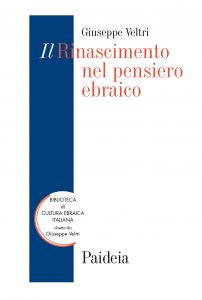The Jews in the Renaissance
 By Pagine Ebraiche staff
By Pagine Ebraiche staff
There is no period in Italian history more celebrated, praised, and idealized than the Renaissance. Thanks to artists and intellectuals, a new awareness came to light. A new humanism replaced the traditional way of thinking manifesting itself in art, architecture, politics, science and literature. This great revolution did not leave untouched Jewish culture, which became both engine and agent of this unprecedented renewal.
A new book by the Italian scholar Giuseppe Veltri, Il Rinascimento nel pensiero ebraico – The Renaissance in the Jewish Thought, recently released by the publisher Claudiana, reconstructs intellectual Jewish life in Italy and Europe during that period, retracing its most important moments. Through six chapters, the volume highlights the birth of a new historical awareness and the process of secularization, the function of Dante’s poetry as a bridge between Jewish and Christian world, the use of vulgar language as integration of different traditions, the birth of criticism, and the debate about the immortality of the soul.
Stretching to the 17th century, the author, who is ordinary of Jewish Philosophy at Hamburg University and director of the Maimonides Centre for Advanced Studies, portrays a gallery of extraordinary figures, some of them well known, others less so. Among them, Leone Ebreo, the famous literate and philosopher lived between 15th and 16th century, the poet Manoello Romano, the physician and scholar Azaria de’ Rossi, Rabbi Low from Prague, and the Venetian poet and writer Sara Copio Sullam.
It is a multifaceted reconstruction aimed at clarifying, beyond any stereotype, the real role of Judaism. Was is it a protagonist of the Renaissance or just a spectator? Was its contribution emphasized by the contemporaries and by later researchers? And what was the theoretical extent of the search of the new in cultural and philosophical life of Jewish intellectuals?
